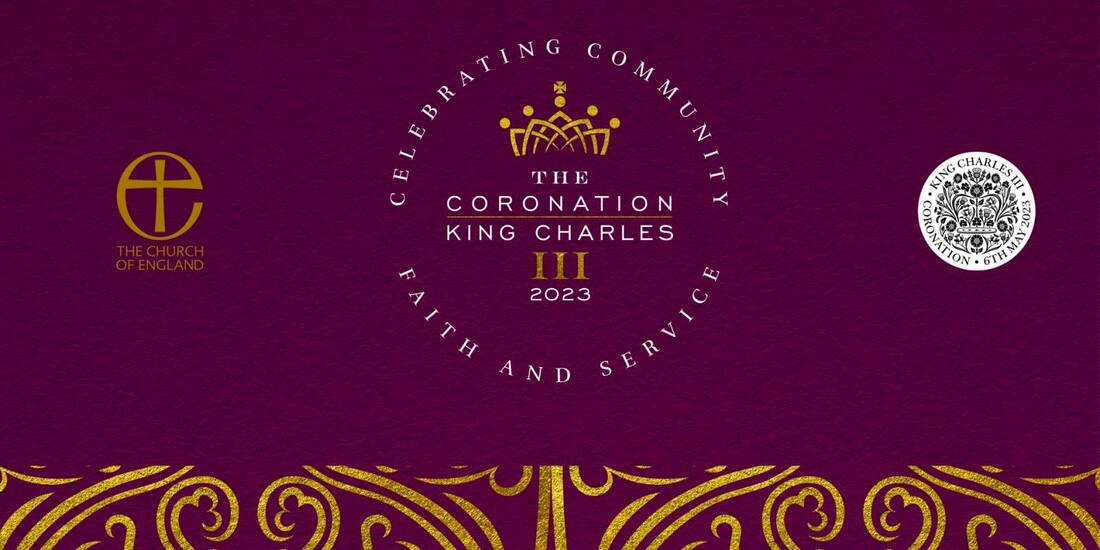|
He earned a BA at Cambridge after studying archaeology, anthropology and history. He’s a skilled painter, plays three instruments, wrote and published a children’s book, can speak Welsh, can fly fighter jets, has a rare species of frog named after him, and drives a Aston Martin fuelled by surplus British wine! I mean, is there anything more British than that? At 11am on Saturday 6th May 2023 in Westminster Abbey the ceremony, which marks the formal ascension of King Charles III as Monarch of the United Kingdom of Great Britain and Northern Ireland, and other realms and territories of the Commonwealth, took place. The coronation bestowed upon King Charles III the title of ‘Defender of the Faith’ and ‘Supreme Governor of the Church of England’, and is intended to bind king, people and Christ together by means of covenantal promises. The pomp and pageantry was spectacular. Great theatre, moving musical accompaniment, and poignant liturgy, wrapped in history and tradition,all pointed to one thing, and one thing alone. That Christ is Lord. The first words of the coronation service are the words of a greeting, said by a child. The child said, “Your Majesty, as children of the Kingdom of God we welcome you in the name of the King of Kings.” During the time of Jesus, the most important religious ceremony was the Passover Meal. It was a ritual centered around food and family, fellowship and friendship. The words used to shape the meal time retold the story of the Exodus, and the freeing of God’s people from slavery. The first words spoken were those of a child and are still practiced and known today as the Ma Nishtana, which means "What is different?" or "What has changed?" in Hebrew. What has changed? In 1953 when Queen Elizabeth was crowned the country was very different. The Christian identity of our nation was self-evident. 80% of the country identified as Christian as opposed to 46% today. Some 10 million people regularly attended church, as opposed to 3 million today. In the early 50s there were emerging signs of prosperity as the country developed and rebuilt from the affects of the war. Today we find ourselves in a cost of living crisis and after extended period of austerity, and the country feels greatly divided on matters of faith, politics, and what constitutes personal freedom and truth. We are encouraged and indeed sometimes funnelled into taking a stance, and to be opposed to the other that thinks and acts differently, and to defend at all costs the idea that our way is the right way. The casualty of this is not the pride of the one we oppose but our own humility. The problem is not that we may think differently to others, but that we are surprised and affronted by it. On a day like today the irony is noted. That the Church of England was birthed from protest and defiance, and yet the universal Church of Christ was intended at the dawn of Creation through the first utterances of the Word of God to be an instrument of love and mercy. When Jesus said the greatest among you should become like the one who is the youngest, what do you think he meant? When he said the one who is at the table may well be the greatest but I have come as the one who serves. What do you think he meant? When the child greeted the king at the start of the Coronation service the king responded with these words: In his name, and after his example, I come not to be served but to serve. When the Archbishop of Canterbury was asked what the purpose and theme of the coronation service is, he answered that the Coronation is about service. To reflect the nature of Christ who came as the one who serves. Service. The biblical word for service used in the gospel reading today is the Greek word diakonos. New Testament scholars will tell you that this is to be rendered in English as the act of humble service. Prior to the writing of the New Testament, the word was used slightly differently though. Plato, for instance– used the word in such a way to emphasis ‘agency’, and ‘message’. It may leads us to consider a more comprehensive reading of the gospel today, that service is not something assigned only to our intentions and to our personal values, but something that is embedded in our 'agency', and that every act of service has the power to convey a 'message' to those we serve. I remember when working in retail the secular mantra of ‘the customer is always right’. Customer service was defined not by the act itself, but by the experience of the customer. In PC World if the customer entered the store and a member of staff greeted them, that was good. If the customer found what they were looking for, it was at the right price, and they received assistance along the way, and then made the transaction with someone who was polite and courteous, tick tick tick. All was good. Service as experience is the prevailing view of society, and that’s before you get into the idea of after sales service – guarantees and warranties. It flows into church life too. When I want to visit the church, is the door unlocked, is it quiet and peaceful. On a Sunday morning is the church warm and comfortable. Do I feel I receive a good service from the church, is it welcoming and hospitable. Is it there when I need it to be. Service as experience can easily be our mode of thinking. But If our understanding of service is defined by only what we receive we miss the point entirely. Service by proxy is another way we consider service. Yesterday’s coronation service could easily lead us to think that the nation has dressed one man for humble service. Indeed as Christians we can easily slip into thinking that the Holy Spirit enables one man in Jesus to personify service on our behalf. That we are passive yet grateful recipients of the perfect example of our Lord Jesus. But if we live with the idea that someone else can serve in the way we intend to but do not then we miss the point entirely. The crowning and clothing of the King was a powerful symbol of not only one man being clothed for service, but the calling of a nation to the service of Christ. In the same way Jesus modelled humble service to God and sacrifice for the sake of all in his journey to the cross, of which the cross stands as a powerful symbol. The cross now represents not only the act and obedience of Christ, but the calling of a whole church to live likewise. In what was a tremendously moving and powerful service, the Coronation speaks of a nation that yearns to live under one authority, to be united once again, to be a people defined by the goodness of our history, the solidity of our traditions. To be measured by our service to those in need, and to be judged by the grace we receive and offer. May this era return us to Christ, and lead us to glory. God save the King. Amen. Amen. Revd Jeremy PutnamRevd Jeremy is the Priest in Charge of the three parishes of Offwell, Farway and Widworthy. |
Details
Archives
March 2024
Categories
All
|
|
|

 RSS Feed
RSS Feed


